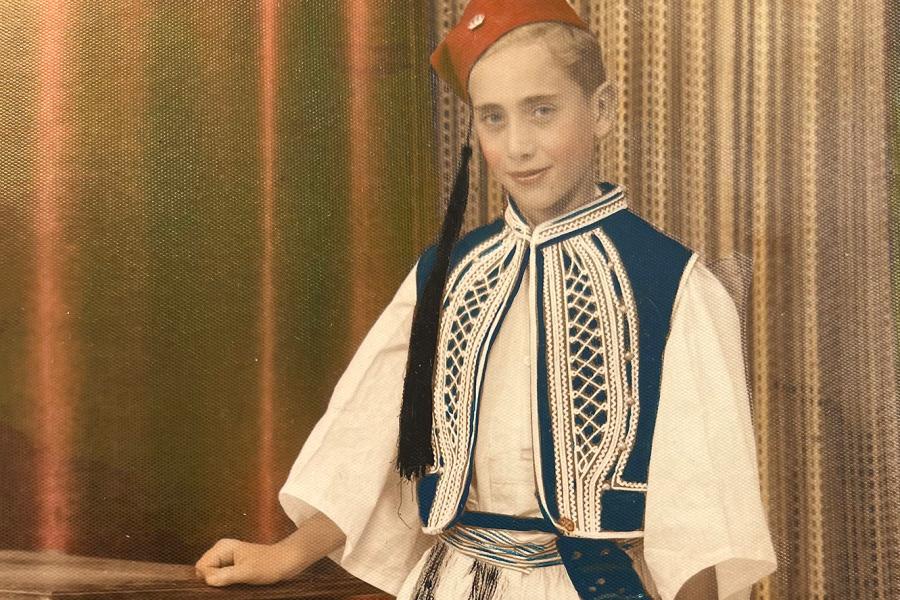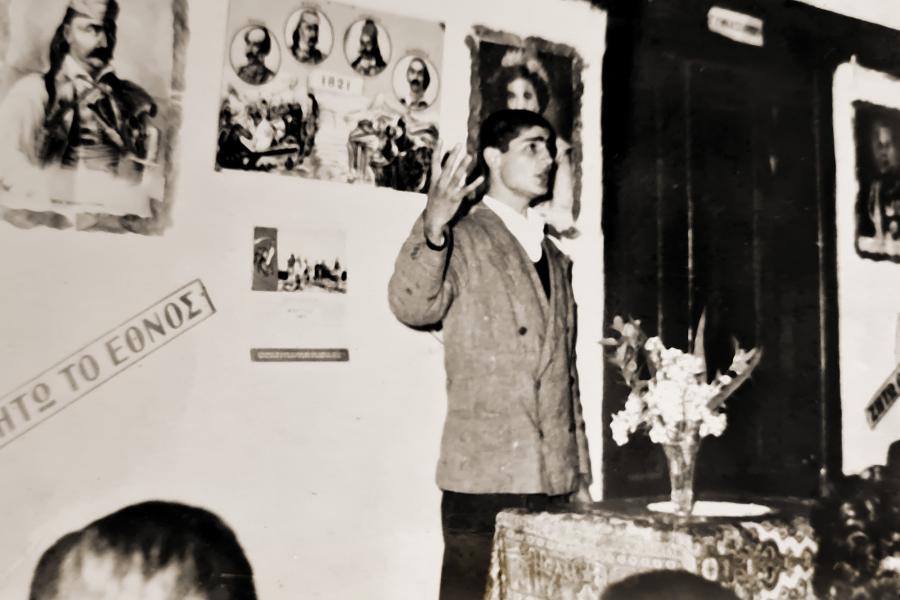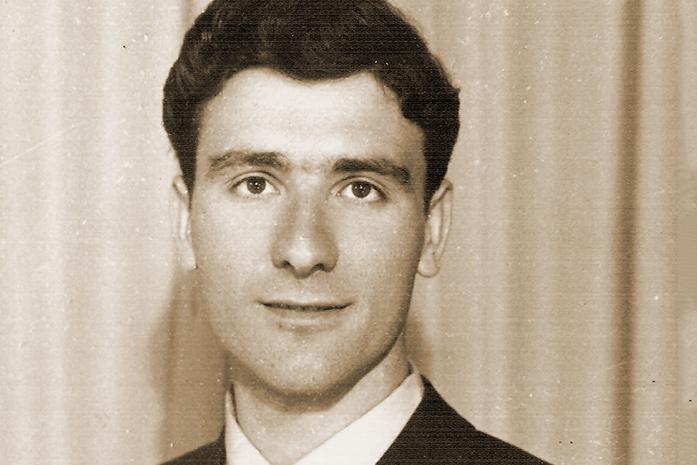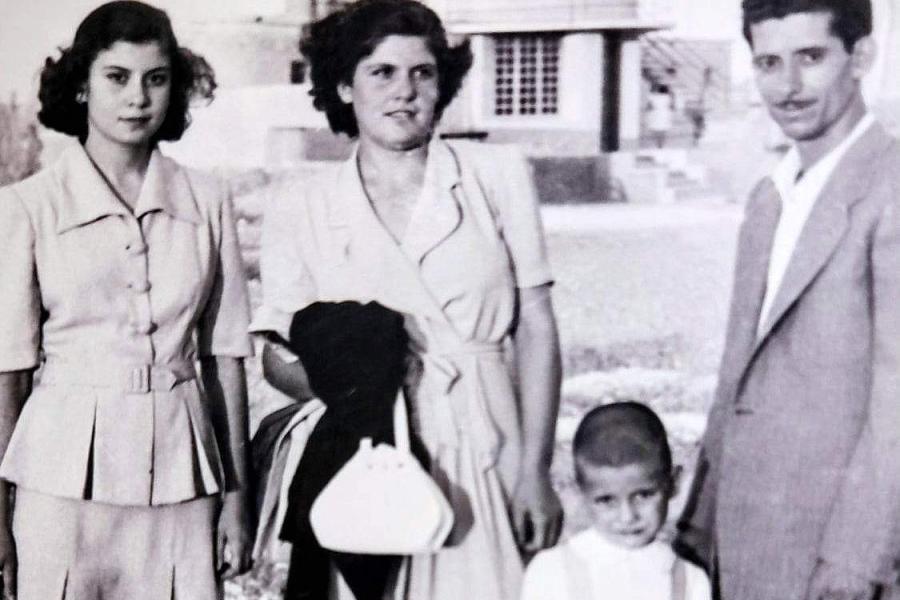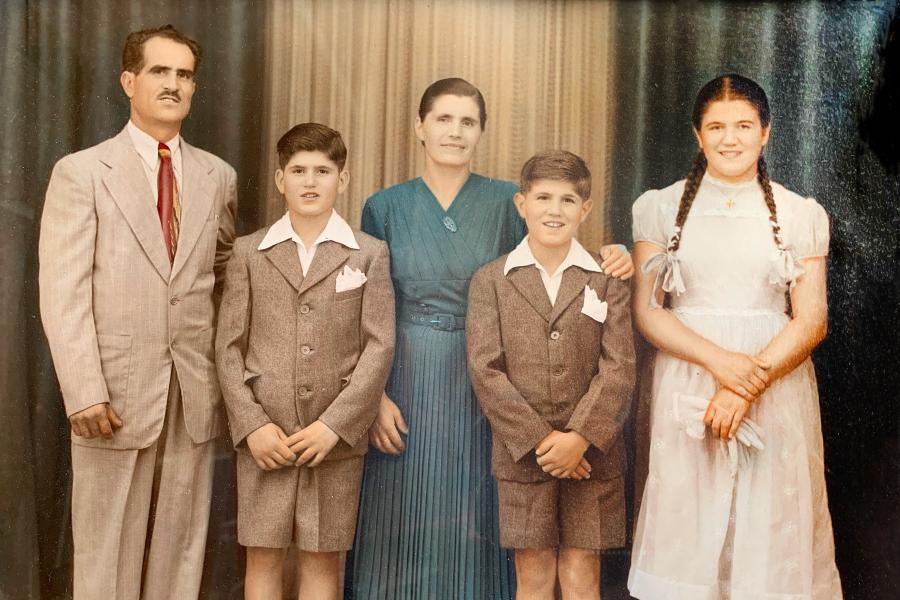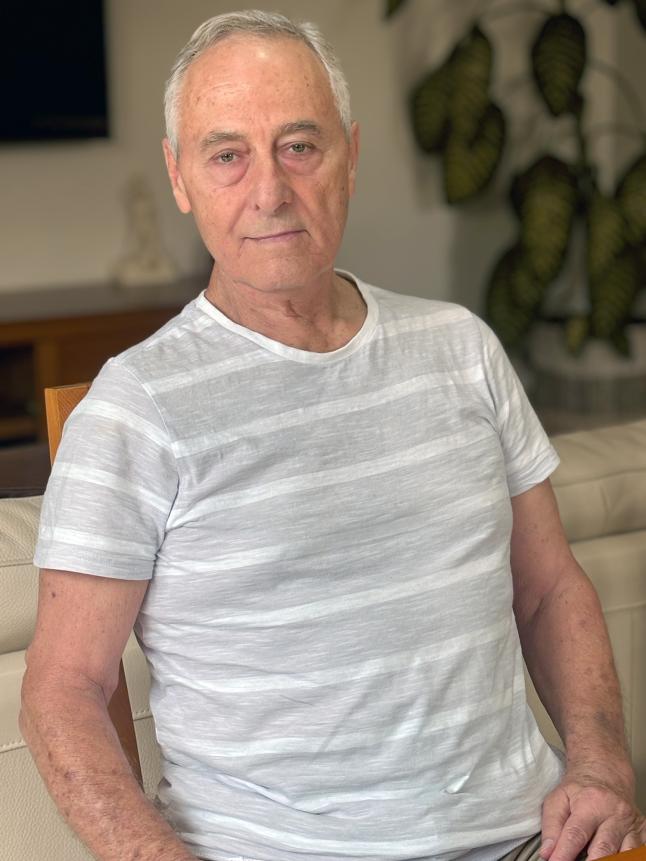

Speaker background
Aris Nikolakakis was born in Drama in the region of Macedonia on the 31st of January 1947. He was six and a half years old when his family moved to Athens. His father was from Crete, and his mother was a refugee from eastern Thrace. Due to the family’s economic situation, both Aris’ sister and, later, brother migrated to Australia. In 1964, Aris joined them. After settling in Sydney, he learnt to play the accordion, and started playing music professionally with his band ‘The Blue Stars.’ He combined work at different factories during the day, while sustaining his love for music at night. He is a husband, father, and grandfather, and still plays music recreationally.
Interview summary
Aris begins the interview with his early life in Athens, talking about his studies, work and his decision to follow his siblings to Australia. He talks about his first impressions of Sydney and first job, and the beginnings of his career as a musician, playing keyboards with his band at different clubs around Sydney. Aris discusses his love for music, the associations he was part of, and the importance of holding on to his Greek identity for his children.
Interview highlights
highlight
Aris describes working his first job in Sydney, at a glass factory in Waterloo.
Aris: It was a big factory and outside there was a blackboard and there were always jobs advertised. Whoever wanted could go in and work without knowing English. And double time, the ‘doubla’ as they used to say. And you made enough money by the end of the week.
Interviewer: And the work, can you explain what you did there?
Aris: We collected bottles. There was a hot hand that made the molds […] They would get a bit cooler so you could touch them. We took them wearing gloves, and we checked the neck of the bottle, if it was broken. And we put them in big boxes.
Interviewer: How long did you stay at this job?
Aris: Two years.
Interviewer: Did you like it?
Aris: Yes, I liked it. But because I started playing music, and we had to play on the weekends. [At the glass factory] we had to work Sundays and Saturdays and shift work.
Interviewer: So, what were your hours at the factory?
Aris: We worked three days in the morning, three days in the afternoon and three days in the evening. After those three days, we had a day off. Three days in the afternoon, one day off. Three days in the evening, one day off. So, because I played music and we had a few jobs on Saturdays, I couldn’t work at a factory that had shift work.
Interviewer: Do you remember your pay at the factory?
Aris: It was 17-19 pounds during that time, but with the ‘doubla’ that we did, a lot of the time 36.
Interviewer: ‘doubla’ as in double shift.
Aris: Double shift, 16 hours.
Interviewer: Continuously.
Aris: Eight plus eight, sixteen. Someone would finish their shift, 8 hours, and if someone was away, they would ask you ‘Do you want to stay for another 8 hours?’ And we always said yes.
Interviewer: The Greek migrants preferred it. They did it immediately.
Aris: Yes, we wanted it. We wanted it because from 17-19 pounds that we made a week, that was the salary, it got to 36 and 40 pounds. It was a lot of money. And you could cash out most of that.
Timecode 16:33 - 19:59
highlight
Aris talks about his love for music.
Interviewer: In your opinion what role did music and nightclubs play for the Greek migrant?
Aris: I liked playing at the clubs and at the balls. It was something I enjoyed. It felt like I wasn’t working. Who said it? Was it Confucius: ‘Find a job that you enjoy, and you won’t work a day in your life’? I liked it a lot, and it was like I wasn’t working. Like I was having fun.
Interviewer: What were the most famous nightclubs of that time?
Aris: I played at, the first club we played at was Mocambo. It was a coffee lounge. It served coffee, but a lot of the time, they would put whisky in the coffee if you liked, but because they didn’t have a license, he put it in the coffee cup. We played music there –
Interviewer: Was that a Greek club?
Aris: The owner was Greek-Russian. Yes … it was organised by The Music Lovers Society, Philomousoi.
Interviewer: It was a Greek society?
Aris: Yes, a Greek society, they were from Egypt most of them. Philomousoi, they would get together and dance to Latin American music and we would play Friday, Saturday, Sunday.
Interviewer: Latin American, so no Greek?
Aris: Some Greek music, not much. But most of it was Latin.
Interviewer: Did you prefer that?
Aris: We didn’t prefer it, but the customers asked for it. Because a lot of them were Italian, French, Spanish, it wasn’t just the Greeks. So, we would sometimes play some Greek, kalamatiana or syrta, but most of it was cha cha, mambo, bolero.
Interviewer: But you had also been to some Greek clubs, tell us about the ones you worked at.
Aris: I worked at Patris, for a bit of time, I helped for a bit until their own keyboardist came back, and then I went to Salona.
Interviewer: Tell us about Salona. A lot of people went to Salona.
Aris: Salona was a well-known club, that had a lot of work, especially on the weekends. We had a good band, nothing like Blue Stars [Aris’ first band]. It was only laika (Greek folk music) and some European music.
Interviewer: So, did they tell you what to play?
Aris: No, they didn’t need to. We knew that at these clubs, the Patris, the Athina, the Vrachos, Salona, they play laika. And the people would dance the zeibekika, the syrta, the kalamatiana, the tsamika, and they did 2 and a half hours with European music, so the older people could dance.
Timecode 28:27 - 32:58
